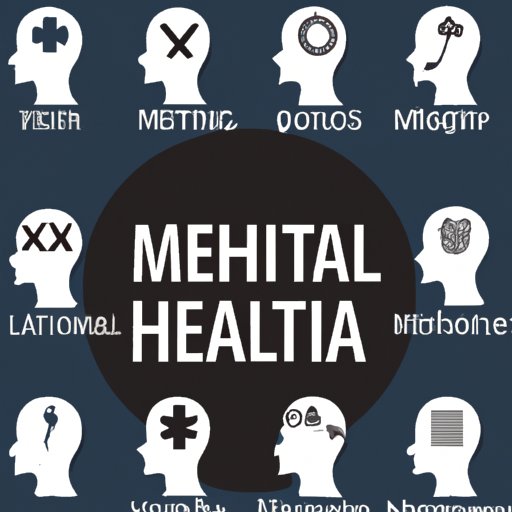Introduction
Mental health and mental illness are two terms that are often used interchangeably, but they actually refer to two very different things. Mental health is a state of wellbeing that allows us to cope with the demands of everyday life. Mental illness, on the other hand, refers to a range of conditions that affect our thoughts, feelings, and behavior. In this article, we’ll explore the differences between mental health and mental illness and provide a guide to understanding both.
Exploring the Differences Between Mental Health and Mental Illness
Before diving into how mental health and mental illness differ, it’s important to understand what each term means.
Understanding Mental Health
Mental health is a state of wellbeing in which an individual can effectively cope with the demands of everyday life. It’s not just the absence of mental illness, but also involves emotional resilience, self-acceptance, and the ability to form meaningful relationships with others. Good mental health is essential for overall wellbeing and quality of life.
Understanding Mental Illness
Mental illness is a broad term used to describe a range of conditions that affect a person’s thoughts, feelings, and behavior. These conditions can have a significant impact on a person’s daily life and can be disabling, if left untreated. Common examples of mental illness include depression, anxiety, bipolar disorder, schizophrenia, and obsessive-compulsive disorder (OCD).
Mental Health vs. Mental Illness: What’s the Difference?
Now that we’ve defined mental health and mental illness, let’s take a look at how they differ.
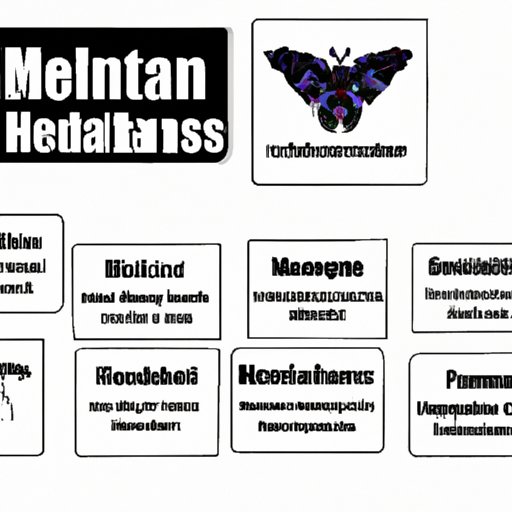
Common Symptoms of Mental Health and Mental Illness
Both mental health and mental illness can cause physical and emotional symptoms. Physical symptoms may include fatigue, changes in appetite, or difficulty sleeping. Emotional symptoms may include mood swings, irritability, or feelings of sadness or hopelessness.
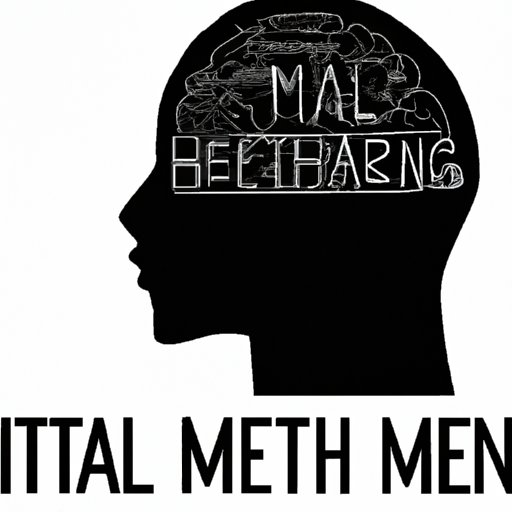
How Mental Health Differs From Mental Illness
The main difference between mental health and mental illness is that mental health is a state of wellbeing, while mental illness is a diagnosable condition. Mental health is something that everyone has, whereas mental illness is a medical condition that affects a person’s thoughts, feelings, and behavior.
Comparing Mental Health and Mental Illness
Mental health and mental illness can be further broken down into different types.
Different Types of Mental Health
Mental health is divided into three categories: psychological, social, and spiritual. Psychological health includes our ability to think clearly and make decisions, as well as our capacity to cope with life’s challenges. Social health refers to our ability to interact and connect with those around us. Spiritual health encompasses our sense of purpose and meaning in life.
Different Types of Mental Illness
Mental illness is divided into four categories: anxiety, mood, psychotic, and personality disorders. Anxiety disorders include panic disorder, phobias, and post-traumatic stress disorder (PTSD). Mood disorders include depression, bipolar disorder, and seasonal affective disorder (SAD). Psychotic disorders include schizophrenia and schizoaffective disorder. Personality disorders include borderline personality disorder, narcissistic personality disorder, and antisocial personality disorder.
A Guide to Understanding Mental Health and Mental Illness
Maintaining good mental health is essential for overall wellbeing. Here are some tips for achieving and maintaining good mental health:
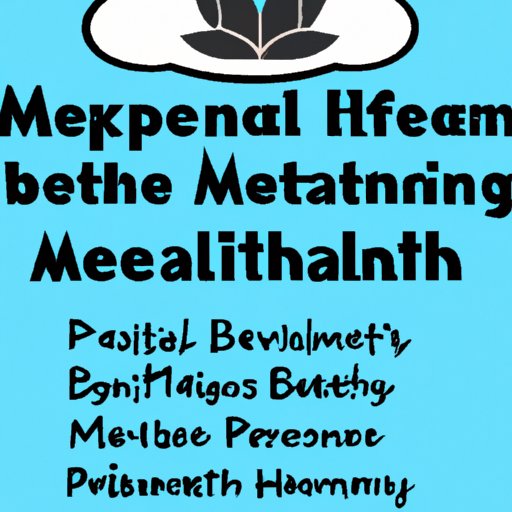
Benefits of Maintaining Good Mental Health
Good mental health can help you lead a more fulfilling and successful life. It can also help you cope better with life’s challenges and build stronger relationships with those around you.
Risks of Poor Mental Health
Poor mental health can have a profound effect on your life. It can lead to poor decision making, difficulty concentrating, and difficulty forming meaningful relationships. It can also lead to physical health problems, such as headaches, digestive issues, and insomnia.
How to Recognize the Signs of Mental Health and Mental Illness
It’s important to be aware of the signs of mental health and mental illness so that you can get help if needed. Here are some signs to watch out for:

Physical Signs of Mental Health and Mental Illness
Physical signs of mental health and mental illness can include fatigue, changes in appetite, difficulty sleeping, and headaches.
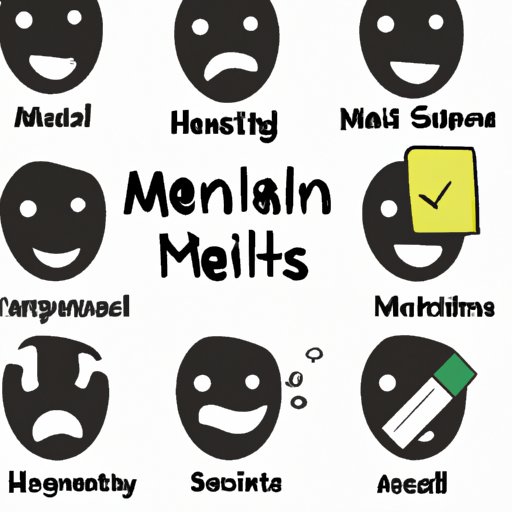
Emotional Signs of Mental Health and Mental Illness
Emotional signs of mental health and mental illness can include mood swings, irritability, feelings of sadness or hopelessness, and difficulty concentrating.
Conclusion
Mental health and mental illness are two terms that are often used interchangeably, but they actually refer to two very different things. Mental health is a state of wellbeing that allows us to cope with the demands of everyday life, while mental illness is a diagnosable condition that affects a person’s thoughts, feelings, and behavior. It’s important to understand the differences between mental health and mental illness and recognize the signs of each in order to maintain good mental health.
(Note: Is this article not meeting your expectations? Do you have knowledge or insights to share? Unlock new opportunities and expand your reach by joining our authors team. Click Registration to join us and share your expertise with our readers.)
